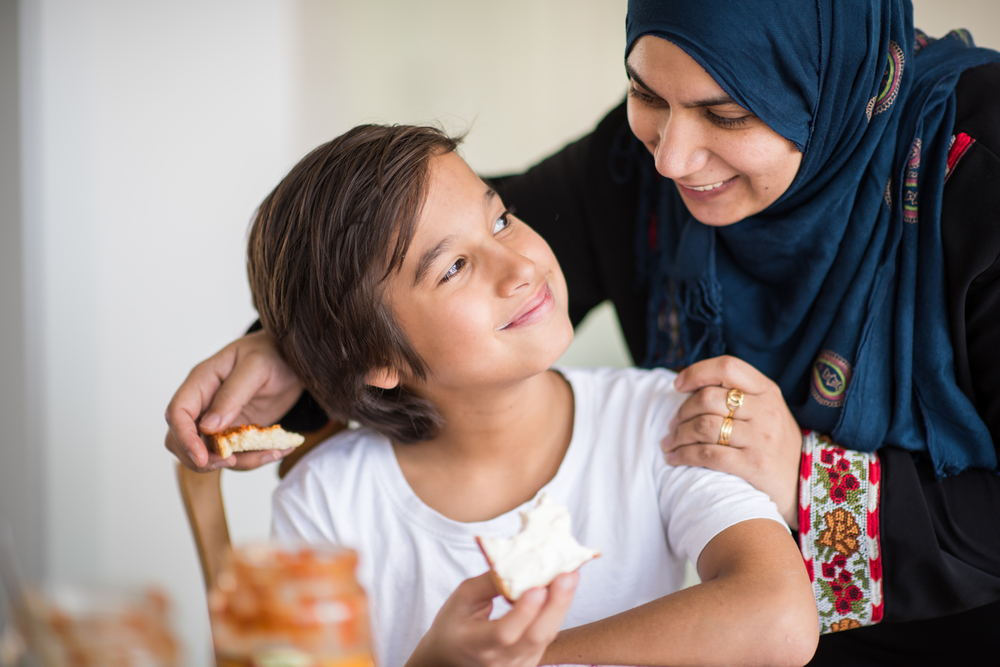Can I Pray to Remove My Ex-Husband From Our Lives?
Answered by Shaykh Irshaad Sedick
Question
I have a six-year-old son who was born just after I converted to Islam. His father is not Muslim and strongly dislikes Islam, pushing him towards things that harm his health and faith.
Am I allowed to make dua and ask Allah to remove him from our lives? Additionally, I have remarried, and my husband wishes to leave the country and move to a Muslim-majority country for a better job. What should I do if the Canadian court says I can’t take my son with me? Do I leave him behind or leave my husband? I have no other Muslim family, and I am torn because I love my son deeply.
Answer
In the Name of Allah, the Most Merciful and Compassionate.
May Allah alleviate our difficulties and guide us to what pleases Him. Amin.
I understand that you are facing complex and emotionally challenging situations. Let us address each of your concerns from an Islamic perspective:
Making Dua for Your Son
It is absolutely permissible and encouraged to make dua (supplication) to Allah for your son’s well-being, guidance, and protection. As a mother, you have a natural and Islamic obligation to care for your child’s physical and spiritual welfare. Making dua for his guidance and protection from harm is an act of love and concern. You may pray for his father to embrace Islam and for your son to be raised in a healthy environment.
However, it is essential to remember that while you can make a dua for your son’s father to change his ways, you cannot make a dua to “remove” him from your life in a harmful or damaging sense. Please see our detailed answer here. Instead, your prayer should be directed towards positive changes in his beliefs and actions, and Allah knows best.
Relocating to a Muslim Country
When considering relocating to a Muslim-majority country with your husband, you should be aware of the legal requirements and potential challenges that may arise concerning your son’s custody, especially if the Canadian court grants custody to the non-Muslim father.
In such situations, consulting with legal experts well-versed in family law in Canada and international child custody matters is essential. They can provide you with specific advice on navigating the legal system in a way that is both lawful and in your child’s best interests.
Islamic principles should also guide your decision, emphasizing the importance of maintaining family ties and fulfilling maternal responsibilities. If, after seeking legal counsel, you find that you are legally unable to take your son with you, you may explore options for visitation rights and maintaining a solid relationship with him, even if you have to live in different countries. A vital consideration in your decision should be your son’s well-being and religious identity.
The decision to leave your son or your husband is challenging. It is essential to make it after careful consideration of all legal, practical, and ethical aspects, with guidance from legal and religious authorities and consulting with professionals who specialize in family counseling, and Allah knows best.
Additionally, seek support from your local Muslim community and organizations that can provide emotional and practical assistance during this challenging time.
Remember that Allah is the Turner of hearts. Through sincere dua and continued effort, it is possible for your husband’s (and ex-husband’s) heart to soften and for your family to find a way forward that agrees with Islamic values and your child’s best interests. Patience, perseverance, and reliance on Allah’s guidance are essential in these difficult situations, and Allah knows best.
I pray this is of benefit and that Allah guides us all.
[Shaykh] Irshaad Sedick
Checked and Approved by Shaykh Faraz Rabbani
Shaykh Irshaad Sedick was raised in South Africa in a traditional Muslim family. He graduated from Dar al-Ulum al-Arabiyyah al-Islamiyyah in Strand, Western Cape, under the guidance of the late world-renowned scholar Shaykh Taha Karaan.
Shaykh Irshaad received Ijaza from many luminaries of the Islamic world, including Shaykh Taha Karaan, Mawlana Yusuf Karaan, and Mawlana Abdul Hafeez Makki, among others.
He is the author of the text “The Musnad of Ahmad ibn Hanbal: A Hujjah or not?” He has served as the Director of the Discover Islam Centre and Al Jeem Foundation. For the last five years till present, he has served as the Khatib of Masjid Ar-Rashideen, Mowbray, Cape Town.
Shaykh Irshaad has thirteen years of teaching experience at some of the leading Islamic institutes in Cape Town). He is currently building an Islamic online learning and media platform called ‘Isnad Academy’ and has completed his Master’s degree in the study of Islam at the University of Johannesburg. He has a keen interest in healthy living and fitness.
